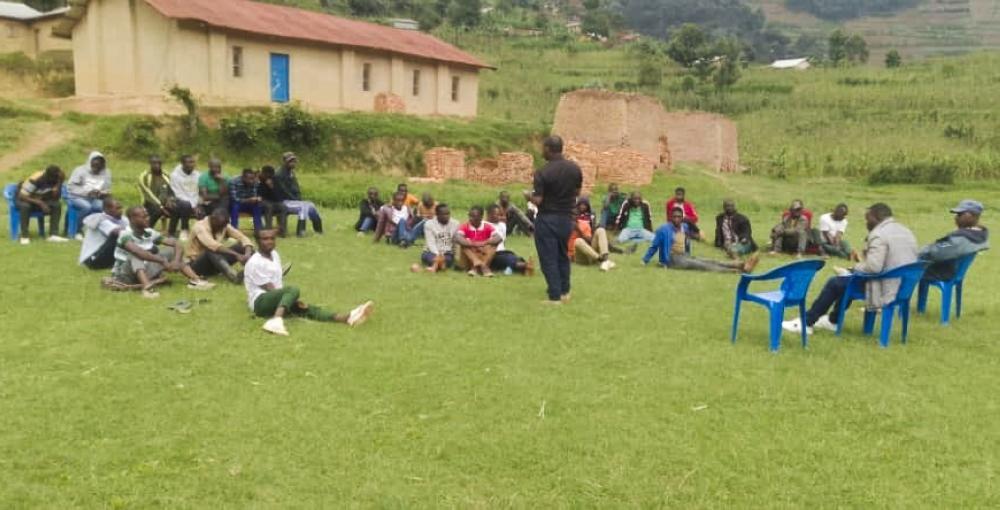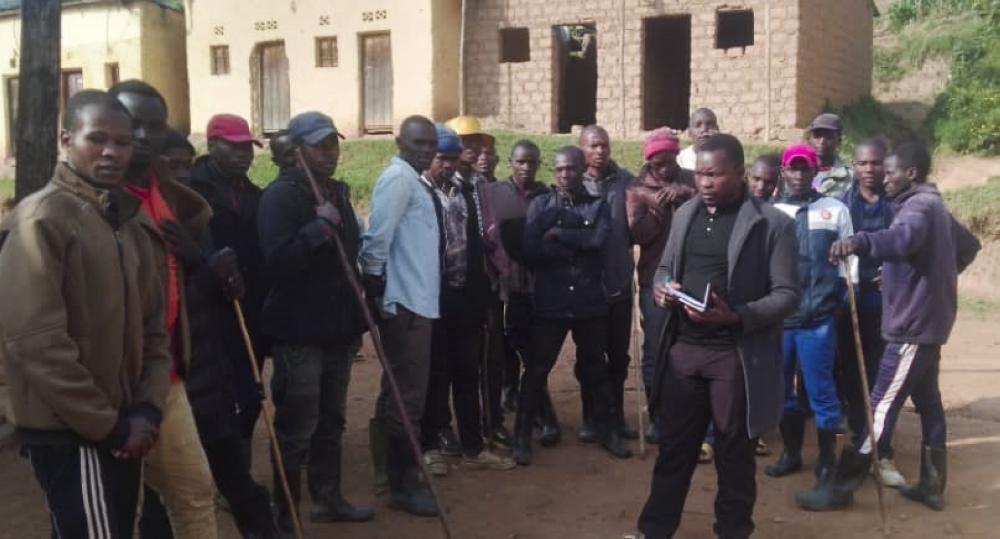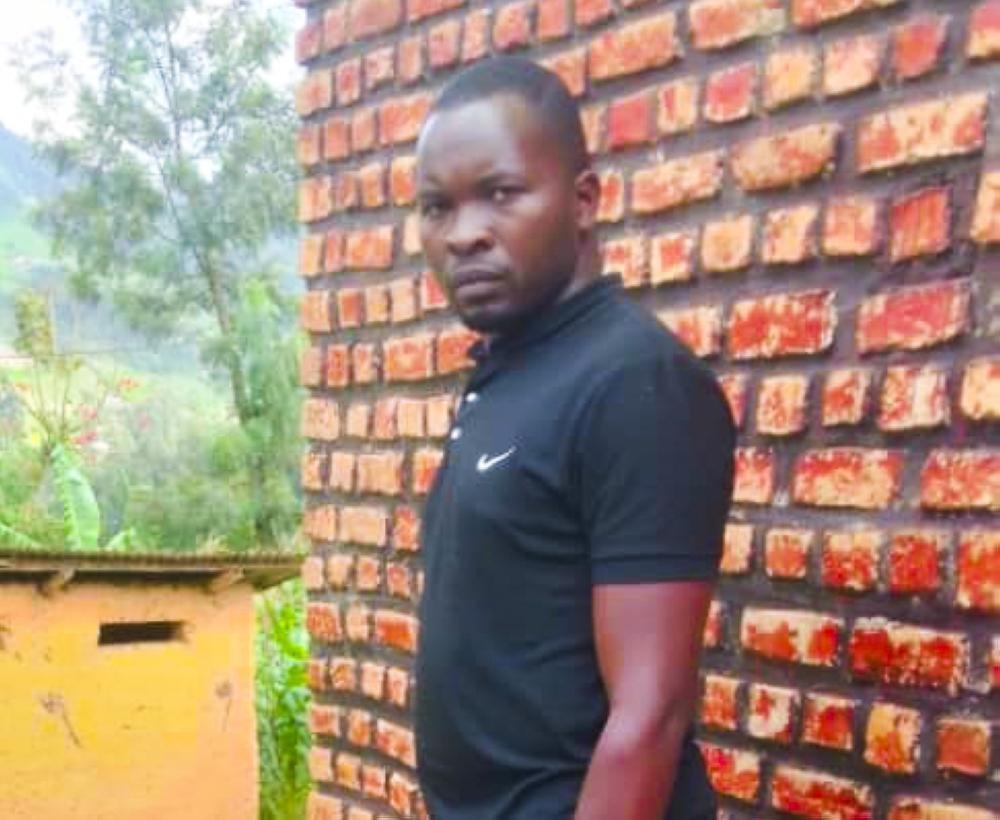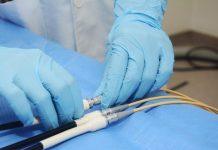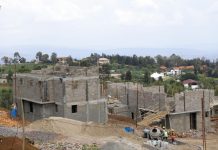Africa-Press – Rwanda. Peer pressure and an urge to get rich quickly once drove a young man out of school and into drug trafficking, transporting illicit brew from Uganda to Rwanda. But that was before he abandoned the reckless pursuits and joined efforts to combat the same vice in Burera District.
Eric Dusengimana, a resident of Kivuye Sector in Burera District, was only 20 years old in 2016 when he dropped out of Senior Five, where he was studying History, Economics and Geography.
He recalls how his peers influenced him into believing that school was not the solution and that there was more money to be made outside.
“With the hunger for money I had, it felt like someone had simply awakened me,” Dusengimana said. “I joined them and became the eighth member of the group. We started doing manual labour and small businesses while saving whatever we could.”
In May 2019, the group was offered a job to transport a 20-litre jerrycan of Kanyanga for Rwf5,000 over a distance of about eight kilometres. He thought the money was significant at the time, but soon realised the risks of imprisonment and even death outweighed the reward.
After that, he said, he moved into buying and selling the illicit brew, which is locally known as Kanyanga. “I would buy a jerrycan (20 liters) at Rwf20,000 and sell it for Rwf30,000. After paying Rwf5,000 for transporters, I still made some profit. On average, I was dealing with about eight jerrycans a day.”
But the trade was dangerous. Security organs were actively pursuing traffickers, and at times he had to abandon entire consignments and flee. In desperation, he sometimes resorted to robbery to recover his losses.
“Though I had left school to chase money, in about three years I had managed to save Rwf700,000. But I lost all of it in just one month of trafficking Kanyanga,” he said.
SO READ: Burera registers decline in smuggling, drugs — officials
He was fortunate to quit before being arrested, but he fell into consuming the brew himself in June 2019.
“My old peers told me that life outside is hard, and we needed to drink to cope with it,” he said. Kanyanga, sold at Rwf400 for a 330ml bottle, was cheap but addictive. “Even if you earned Rwf2,000 from a day’s work, you would end up spending it all on alcohol.”
Authorities compiled a list of users and enrolled them in rehabilitation.
“After those lessons, I was not only scared of the health impacts but also worried that my dealings had been exposed. I feared imprisonment,” he admitted.
That was the turning point. Encouraged by the example of one peer who had successfully quit, Dusengimana resolved to change.
He distanced himself from the group, reunited with his family, and began to demonstrate his transformation. His parents, encouraged by his progress, gave him Rwf50,000 to start a small investment.
In 2020, he rented a small plot of farmland for Rwf25,000 per season and planted Irish potatoes with the support of his parents. At harvest, he earned Rwf220,000, the luckiest farming season he had ever seen, he said.
The following year, he returned to school and completed his secondary studies. He now looks forward to university, where he plans to study economics. Meanwhile, he has expanded his farming activities to nearly one hectare, from which he earns an average of Rwf1 million in profit per season.
Dusengimana has also taken on leadership responsibilities. Today, he serves as the head of the local security organ locally known as “Imboni z’Umutekano” in Burera District. He uses his position to mobilise communities against drug abuse and to support operations against smugglers.
“I know some of the tricks they use, and that helps us to catch them,” he said.
“I also share my own story to warn the youth about the dangers of peer pressure, drug abuse, and the false promises of quick wealth through illegal means.”
Eric Dusengimana, once a Kanyanga dealer, now leads the fight against smuggling in Burera District.
Eric Dusengimana, a former Kanyanga dealer, now leads the fight against smuggling in Burera District.
For More News And Analysis About Rwanda Follow Africa-Press

